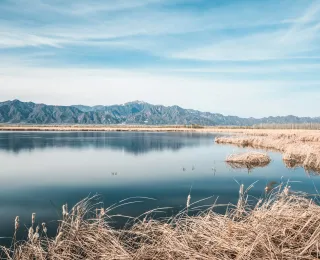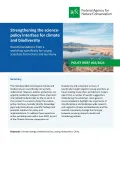Young researchers at the science-policy interface for climate and biodiversity

The results of the virtual workshop are now presented in a policy brief, which was developed in collaboration with the young researchers. Some key recommendations include:
- Bilateral, multilateral, cross-sectoral and interdisciplinary research partnerships, especially for young scientists, should be fostered to address the challenges associated with the interdependence of climate and biodiversity research;
- Increasing exchange, communication and mutual understanding between scientists, policy makers and funding bodies is needed to foster policy-relevant research and implementation;
- Funding bodies also play an important role at the science-policy interface. They need to increase awareness of funding opportunities, ease access to funds and enhance communication and coordination.
A strong evidence base along with a well-functioning science-policy interface is required to halt further negative impacts from climate change and biodiversity loss. As future leading scientists and decision-makers, young researchers worldwide play a key role in this regard. For example, young scientists can support the development of forward-looking research questions, anticipate digital solutions and strengthen interdisciplinary science. Furthermore, decision-makers can be made more aware of the potential of synergetic solutions for climate and biodiversity, like nature-based solutions.
Background
This policy brief is an output of the first virtual workshop for young researchers from China and Germany held in the summer of 2022, which was organised in the context of the longstanding collaboration between the BfN and Chinese research institutions. In close collaboration with the Chinese Research Academy of Environmental Sciences (CRAES) and the United Nations Environment Programme – International Ecosystem Management Partnership (UNEP-IEMP), the BfN brought together young researchers to network and identify future collaboration opportunities.
The next virtual workshop for young researchers is planned for summer 2024.
